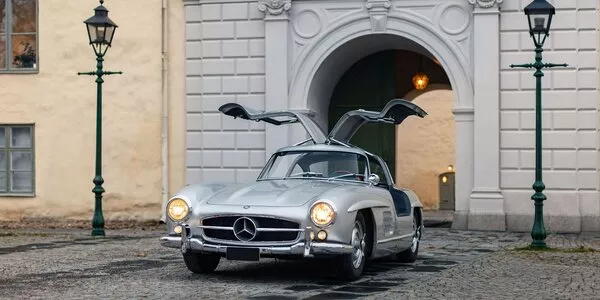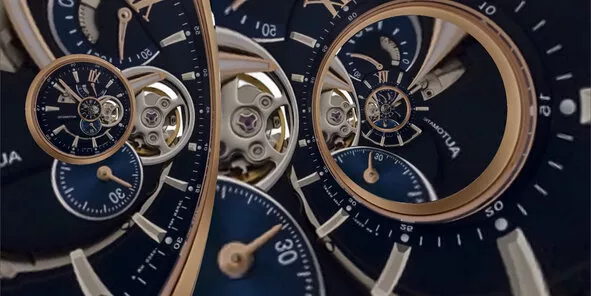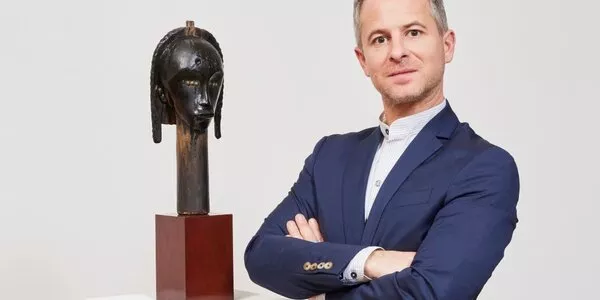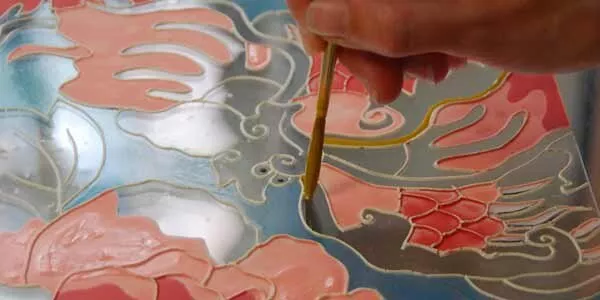
Christine Vernay, A woman of the land
In her brand new car, Christine Vernay refuses to rely only on the help of an electronic camera when reversing and prefers to just turn her head to be sure of her manoeuvre. In the vineyard, the same philosophy guides her work: trust your instincts, test, learn and move forward. Her path to running a vineyard was not a straight line and few could have predicted that Christine would end up managing one of the most famous vineyards in Condrieu, in the Rhône.
Her brothers showed little desire to take over the family estate, so it was Christine who picked up the reins twenty years ago, ensuring that “the estate would not be lost.” “As it was rare for women to take over a wine estate, I wasn’t even considered as a future manager,” she observes without bitterness. Daughter of the so-called “Pope of Condrieu”, Georges Vernay, who believed in the potential of the Viognier white grape variety from the 1970s, Christine only started working on this project at the age of 39. Her father had saved the Condrieu appellation, pinning his hopes on the vineyard rather than cherry plantations or the cultivation of Ratte potatoes and peas, which were favoured by many farmers at the time.
Driven by both envy and enthusiasm
The narrow terraces of the northern Côtes du Rhône, surrounding the small town of the same name, are revered for their quality. These 200 hectares of steep hills overlooking the river hold a worldwide reputation for the excellence of their produce. Christine Vernay had “the desire and the enthusiasm to embark on this adventure.” She waited until after her father’s death before having her name printed on the labels of the bottles, under the vintage, so as to “embody and affirm the transition. Until then, I had not realised how invisible I was, as a woman.”
“I belong to the earth. I’m a part of it.”
Initially, progress was the combined effort of father and daughter as together they carried out wine tastings and shared their opinions. But, Christine adds, “I mostly learned on my own. It is very empirical, like an innate strength which does not seem to originate from anywhere in particular. Classifying is all well and good but they have to be the right classifications.” Christine, who had never done the actual work of a winegrower before, spent hours in the vineyards, replanting two hectares — her “little treasure” as she calls it — on the historic terrain of Vernon. Planted by her grandfather, expanded by her father on the hillside just behind the walls of the family home, this land is a source of great pride for the family, as well as being the basis of its reputation. “Wine is made on the vine”, observes this autodidact who lost four kilos undertaking her first harvest. “I knew we typically pruned, processed and harvested, but I quickly understood that this was not enough.” Started in 1943 on just one hectare, the area now covers 24 hectares including ten in the Condrieu appellation and six in Côte-Rôtie. Right away, Christine Vernay decided to do things differently. “When we talk about terroir, we have a duty to preserve it. The earth does not belong to me, it is me who belong to the earth.”
Taking this to heart, she began organic viticulture 10 years ago. Having just recently obtained the relevant certification, she aims to use this practice to lead Condrieu into the future. Nothing can be taken for granted when the prevailing view remains fully attached to certain preconceived ideas, continuing to believe that “a grassy vine” is a sign of winegrower who has done a poor job. Depending on the seasons and the vines, Christine Vernay knows that she needs to adapt. “You have to learn to unlearn. Each year, we question everything we do. It’s like a cooking recipe, you need a set of ingredients, little tips to make it work...” Confronted with the difficulties of working on extremely steep hillsides with lower yields, she continues to persevere. The lunar calendar is already factored into decisions about when to prune the vines here, and over the last year Christine has also been trialling some other biodynamic techniques. The Condrieu terroir which, for her father, held no great value beyond its “identity and uniqueness,” has achieved its full value under the stewardship of his daughter. So it is her turn to be a pioneer. “For me, organic is obvious,” she says.
“In harmony with my vines”
Her two hectares on the hillside of Vernon have produced their fourth harvest, the second destined for bottling. The magic of history goes into every bottle, which will in turn sell for one hundred euros each. “I can express this sense of belonging to the earth through the wine. That’s what it gives back to me”, reflects the winemaker. An almost innate ability for tasting, which her father always recognised, has helped her a lot in the cellar, where she does her own topping up, working with considerable care and dedication. If she had had the chance to do it all over again, this self-taught winemaker would certainly not have turned down a proper training in viticulture, which might have enabled her to advance somewhat faster in her career.
Testing out new micro-vinifications, the Vernay estate is aiming to define a new identity: certainly not feminine.... but nonetheless separate to the house style with which she grew up. The female story is played out elsewhere, in “a very intense relationship, a need for a tête-à-tête with my wines,” an undefinable alchemy, which is born from the moment the wine enters the cellar. “My father’s wines were very good,” she admits “balanced, fresh, tense. For white wine, I follow directly in his footsteps,” explains the wine producer who in 1998 created the ‘Terrasses de l’Empire,’ a 100% Viognier wine that critics continue to praise with each new vintage. “For the reds, I took another path: focussing on the individual plots, with stronger identities and more specific breeds.” It is important for her to create emotion and endeavour to tell a story: “I don’t want to make any old wine. There has to be a balance between all the various flavours.” The estate now boasts 10 cuvées, two of which are IGP (protected geographical indication). “I have largely maintained the reputation of the domain but it is not an end in itself. The awards are a great recognition for the work we do, but what really motivates me is to make the best wine every year.”
I don’t want to make any old wine. There has to be a balance between all the various flavours.
In search of the perfect food and wine pairing
The taste for entrepreneurship was born with a challenge. Reluctant to delegate, Christine Vernay finds it easier to impart her experience at conferences or presentations to schools. Taking her business abroad, where nearly a third of sales are made, attending salons, meeting customers, designing food and wine pairings for private dinners, enriches both her profession and her life. Gastronomy has also always been integral to the life of her family. Georges was friends with the great chefs Paul Bocuse, Pierre Troisgros and Jacques Pic, and Christine is herself friends with Anne-Sophie Pic.
She emotionally recounts an impromptu afternoon spent with chef Alain Senderens, looking for the best food pairings for Vernon. The appellation owes a lot to the starred establishments located on the edge of the Nationale 7 road, which confer prestige on the region. Christine has also brought her family with her on this great adventure. With business administration carried out by her husband Paul, it will not be too long before she welcomes her daughter, currently in viticulture-oenology training, to the family business. Although it will be a while before she needs to think about passing the business on to the next generation, steering confidently towards a future based on a common set of goals is nevertheless essential. “She harvests, vinifies, knows how to taste. And she knows what she likes,” explains Christine, already foreseeing a future for the estate with a fourth generation of Vernay.





